Search Results
Showing results 121 to 140 of 204
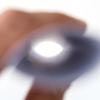
Circles or Ovals?
Source Institutions
This science activity demonstrates the dominant eye phenomena. What does your brain do when it sees two images that conflict?
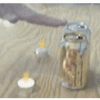
Phantom Phlame
Source Institutions
In this trick, hold your hand over a burning candle without getting burned, by reflecting and transmitting the light of two candles. This activity is best suited as a demonstration.
Diffraction Between Wax Blocks
Source Institutions
In this optics activity, learners explore diffraction by adding wax blocks to a ripple tank. The wedge-shaped blocks act as obstacles that the wave must bend around.
Shadow Puppets
Source Institutions
If you have lights, cardboard, scissors, and some brass fasteners, you can make shadow puppets! Create a story-telling and design challenge for your learners with this simple and creative activity.

Science of Sunblock
Source Institutions
This is an activity (located on page 3 of the PDF under Stained Glass Activity) about nanotechnology making its way into everyday products, such as sunscreen, and how effective these invisible particl
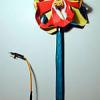
Wandering Wands
Source Institutions
In this activity, learners construct wands that play different notes depending on information from light sensors programmed via a PICO Cricket.
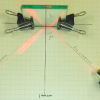
Mirror, Mirror
Source Institutions
In this activity, learners test the Law of Reflection based on experimental evidence. Learners produce raw data and explanations based on their data: pencil tracings of incident and reflection rays.
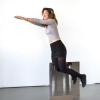
Anti-Gravity Mirror
Source Institutions
In this demonstration, amaze learners by performing simple tricks using mirrors. These tricks take advantage of how a mirror can reflect your right side so it appears to be your left side.
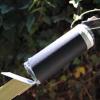
Periscope
Source Institutions
In this activity, learners construct a device that allows them to look over ledges or around corners.
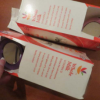
Telescoping Periscope
Source Institutions
In this activity, learners explore the many uses of periscopes and how this simple device was designed and is used in many applications.
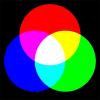
Three Colors of Light
Source Institutions
Have fun with additive mixing! Observe what happens when the three primary colors of light--red, green and blue--are mixed together, resulting in white light.
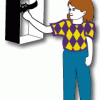
Afterimage
Source Institutions
In this activity about vision and optical illusions, learners conduct a simple test to demonstrate how our eyes create "afterimages." Learners stare at a black cardboard bat for at least 30 seconds an
Fish Eyes: More than Meets the Eye
Source Institutions
In this data collection and analysis activity, learners evaluate fish physiology and ecology using vision research data from Dr.
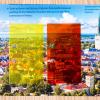
Color Table: Color your perception
Source Institutions
Look at pictures through different color filters and you'll see them in a new way. People have used color filters in beautiful photography or sending secret messages.
Splitting White Light
Source Institutions
In this optics activity, learners split white light into all its component colors using three household items: a compact disc, dishwashing liquid, and a hose (outside).
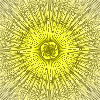
Tie Dye Painting
Source Institutions
This is an activity exploring color and color mixing.

Disappearing Crystals
Source Institutions
Learners experiment with water gel crystals, or sodium polyacrylate crystals, which absorb hundreds of times their weight in water. When in pure water, the water gel crystals cannot be seen.
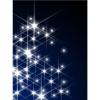
Hot Air
Source Institutions
In this activity, learners set up an experiment to investigate the effects of hot air on the path of a laser beam.
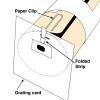
Spectroscope
Source Institutions
In this activity, learners construct their own spectroscope as they explore and observe spectra from familiar light sources.
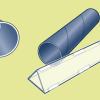
Kaleid-o-mania
Source Institutions
In this hands-on activity, learners build their own kaleidoscopes and explore how light can reflect of off surfaces such as mirrors, to produce beautiful patterns.
